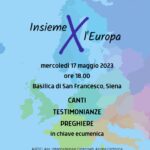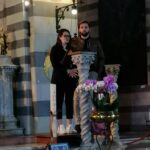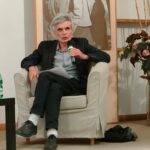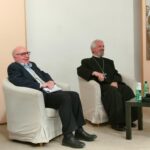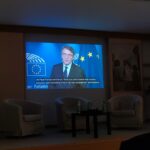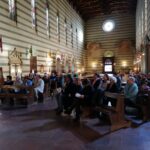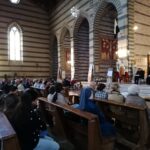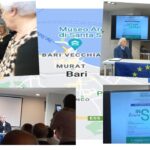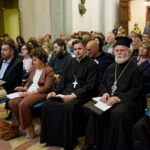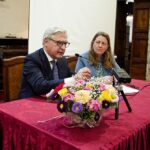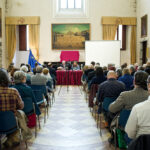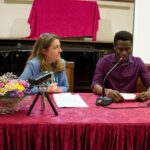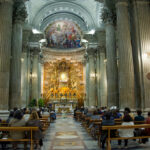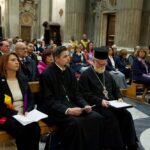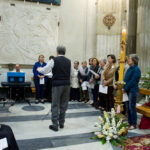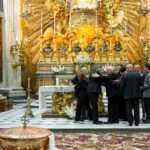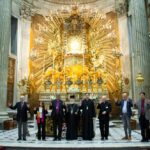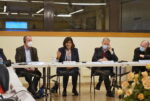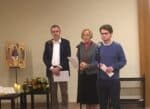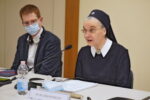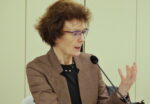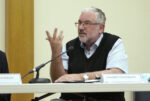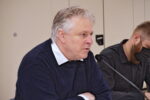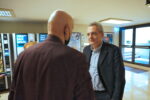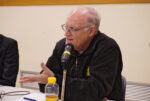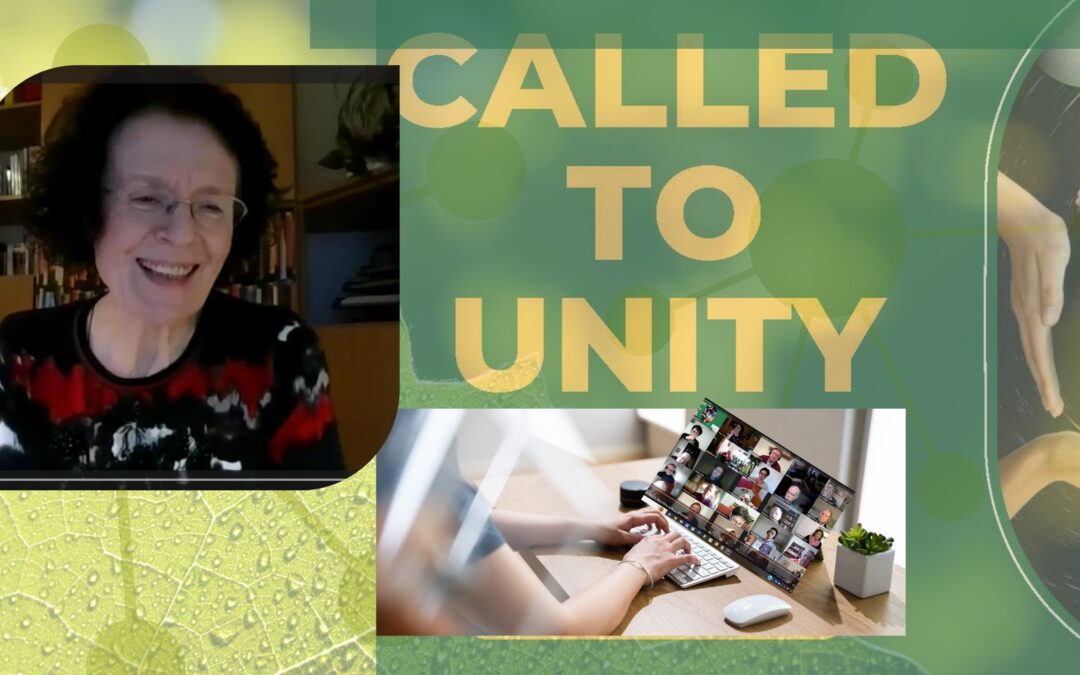
by Ilona Toth | Mar 14, 2024 | Experiences, reflections and interviews, News
A few months ago a veteran of Together for Europe asked me if our network has any influence on the life of the Continent. The courage and clarity of the question surprised me, but behind the words I sensed the real question: “Does my – our – work have a purpose?
After its beginnings, in the message of the first manifestation in Stuttgart in 2004, Together for Europe placed itself in today’s world, in history, declaring its identity for fraternity. A few years later, in 2007 – also in Stuttgart – the so-called 7 YESES were formulated, outlining the concrete programme of action. In one of these YESES it says: “Let us say YES to creation, by defending nature and the environment, gifts of God to be safeguarded with commitment that respects future generations.” The years went by andthe ecumenical network, mainly through the efforts of the various national committees, grew stronger on the Continent. Its structure was outlined with annual international meetings, with local events and, in recent years, from the westernmost part of Europe (Porto/Portugal) we reached the gateway to the East (Timisoara/Romania).
Together for Europe will be 25 years old this year. The question is very fair: while we thank God and mankind for the history of all these years, now, how do we move forward? Do we have and will we have influence on the life of the Continent? Does our work make sense and will it in the future?
The European Union came to our aid by inviting us to participate in a European call for proposals that “promotes citizens’ participation and involvement in the democratic life of the EU” in three fields in particular: the world of communication, the socio-political sphere and ecology. The online meeting on 2 March developed the latter. The 187 bookings and 110 listening places have enthused us and the answers to the questionnaires will help us to develop a KIT with concrete suggestions to the administration. Of course, the preparatory work for this meeting also required commitment, but the joy of seeing high-level experts in different fields, representing various Churches and countries, the encouraging testimonies, confirmed to us: a door to the future is opening here!
What kind of future? Generate as much as possible, with the cohesive force of fraternity, relationship spaces in all the fields of the 7 YESes. This is the ecology of relationships which goes beyond the protection of creation. In this endeavour, it may happen that beyond our common humanity, we discover many realities that bind us and can enhance our unity. On 2 March – in the ecological field – the Italian professor, the Greek theologian, the COMECE representative, the Swiss professor and the Irish doctor, the German expert and the EU official confirmed this, and the testimonies illustrated it. At the end, one participant asked: “How do such positive effects arise?” The answer was: through relationships.
Today, I would perhaps answer that veteran’s question with more conviction.
Ilona Toth
To find out more about the event click here>>
See also press release>>
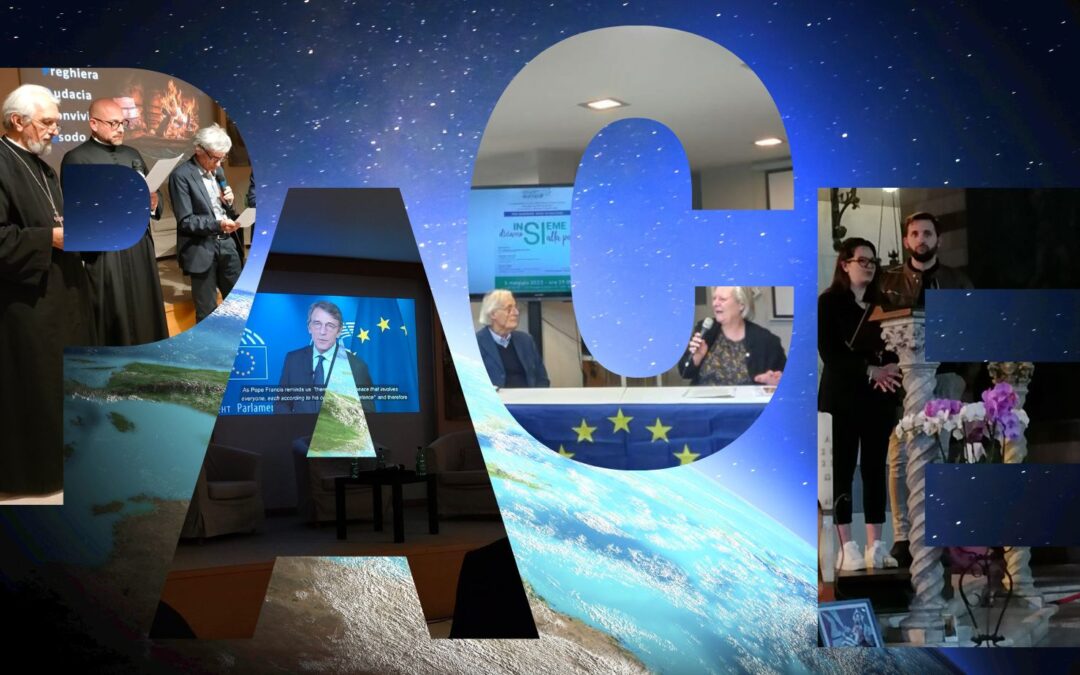
by Ilona Toth | May 27, 2023 | 2023 Europe Day, Italy, News
Europe Day 2023 in Milan, Siena and Bari
IN MILAN DEEP REFLECTIONS AND COURAGEOUS RESOLUTIONS
It was a welcoming house in Via Rovigo in Milan that saw around sixty people from Together for Europe gather for a moment of reflection, discussion and dialogue on the theme of Europe and peace. As Dolores Librale and Alfonso Fornasari affirmed, it was a true celebration of “song, relationships and prayer” to make deep reflections and courageous resolutions. There were four ‘books to leaf through’: the legacy of the Founding Fathers of the European Union, the historical experience of Eastern Europe, the universal vision of Christianity and the testimony of a European politician.
Prof. Edoardo Zin (former vice-president of the Institut Saint Benoit, patron of Europe; postulator of the cause for the beatification of Robert Schuman) did not hesitate to emphasise that “… peace will never come from the pursuit of one’s own strategic interests, but from policies capable of looking at the Whole, at the development of all, attentive to people, to the poor and to tomorrow, not only to the power, gains and opportunities of the present. For all this, Christians are called to be the sentinels keeping watch over Europe”.
Fr Traian Valdman, Archpriest, Eparchial Vicar Emeritus of the Romanian Orthodox Diocese of Italy, offered a perspective on Eastern Europe: “… I come from a world that was not free, but where Christians continued to greet each other, from Easter to Ascension, with the acclamation “Christ is risen”, in defiance of all the ideology of the regime in power”.
Prof. Emilio Florio, President of the Protestant Cultural Centre of Milan and professor of philosophy and history, took us to the “earthly garden created to host the human race”: “We are Christians precisely because we lean out beyond the boundaries to welcome, to speak to everyone…(…) The first Christians were ‘Catholics’, that is, they were universalists, they saw in the other the brother. Not just ‘those from here’. Instead, by interpreting the concept of a garden narrowly, we have built walls everywhere in Europe. (…) We are trees towering on one side towards Heaven and on the other side towards our brothers and sisters in the Universe World to which we have been called”.
David Sassoli (President of the European Parliament until his untimely death) – almost as an illustration of these phrases – through a short video prepared in 2020 was able to testify that together it is possible to achieve whatever one dreams about Europe.
IN BARI FROM SIX DIFFERENT CHURCHES
And here is the email Rita and Giulio Seller wrote to us from Bari:
“We have just concluded our Together for Europe meeting, and we are overjoyed at the success of the event. We were from six different Churches and about ten Catholic movements; in all 130 people seated and some standing. The meeting took place in a hall attached to a Christian bookstore. The bishop came and gave a greeting together with the two keynote speakers: the Lutheran Pastor of Naples-Bari, Kirsten Thie, and Giuseppe Gabrielli of the St Egidio community. The evening was enlivened by songs from the ‘Anna Sinigaglia’ ecumenical choir. It was a great opportunity to create unity between us all, and in the end we were all grateful for the success of the event”.
ECUMENICAL PRAYER FOR EUROPE IN SIENA
The attached photos say it all about the event in Siena.
Edited by Ilona Tóth
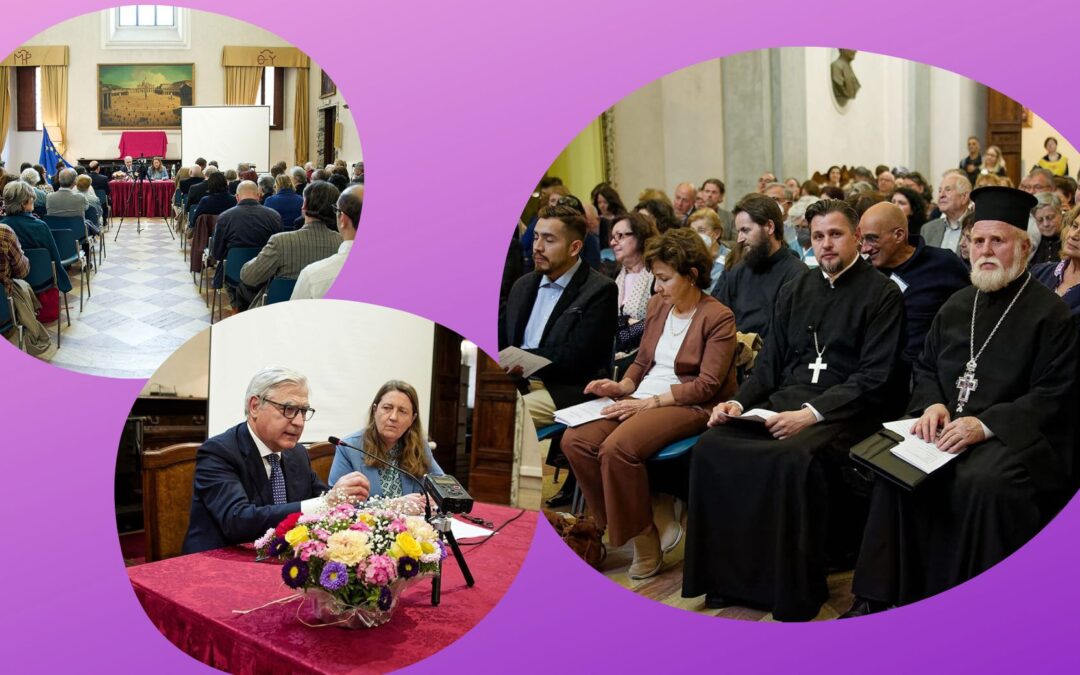
by Ilona Toth | May 26, 2023 | 2023 Europe Day, Italy, News
The vigil for Europe continues – 9 May in the Eternal City
It was on 24 March 2017 when, on the eve of the 60th anniversary of the Treaties of Rome, in the Roman Basilica of the Holy Apostles, packed with people, in the presence of significant ecclesiastical and civil representatives, all standing together at the beginning of the Prayer Vigil promoted by Together for Europe, we heard the quotation from the Preamble of the Treaty that adopted a Constitution for Europe. It was indeed an unforgettable moment, a strong reminder: ‘Europe, you must find yourself again, as a continent, as a civilisation, in Christianity’.
Dialogue and the conquest of peace
And Rome is faithful. Every year, around 9 May, Europe Day, Rome gathers Christians from various Churches, to pray, witness and keep on giving hope for the future of the Continent. This year Together for Europe focused on ‘Dialogue: a culture of encounter to conquer peace’. Those who took part were deeply convinced of the seriousness of the commitment: the Romanian and Greek Orthodox Churches, the Catholic Church, the Federation of Evangelical Churches in Italy, the Anglican Church, the Methodists, the Pentecostal Churches, the Salvation Army, various Movements and Communities, wanted to ‘sign’ with their presence the common, persevering and restless desire of all: PEACE.
Peace is the result of constant craftsmanship
“It is no coincidence that in 2013 the European Union received the Nobel Peace Prize. Let us always remember this mandate that comes from history, but which must be transformed into political initiatives in favour of peace“. This was what Ambassador Pasquale Ferrara, current Director General for Political and Security Affairs at the Ministry of Foreign Affairs and International Cooperation, emphasised in his speech.
This was followed by some testimonies of reconciliation, reminding us how peace will always be the result of faithful and constant craftsmanship. At the same time, one has to look up at the entire globe to realise that “Peace as a policy,” Ferrara continued, “is not an abstractly ethical option; much more concretely, it is a practical necessity, if we do not want to reduce the world to ashes, be it through atomic war or climate change.”
Prayer and networks in the Christian world
The concluding ecumenical prayer saw a small people united in its rich diversity, turned towards the One who that very day in the Catholic liturgy repeated: “I leave you peace, my peace I give you”. (Jn 14:27)
The MEP David Sassoli participated in the event held on 24 March 2017. In an interview he emphasized: “First and foremost, Christians must make themselves heard a little more, and there must be networks in the Christian world that pass on the baton to others”.
We hope that our network can be a small, but vigorous, response to his words.
Edited by Ilona Toth
The event was sponsored by the European Commission Representation in Italy and was part of the initiatives of Insieme-per.eu (European Parliament Community).
See the speech by Pasquale Ferrara (in Italian): – 1 part>> – 2 part>>
See also the article in SIR of 10 May (in Italian)>>
To see the whole event (in Italian) on youtube>>.
Photo: Ala Laiba
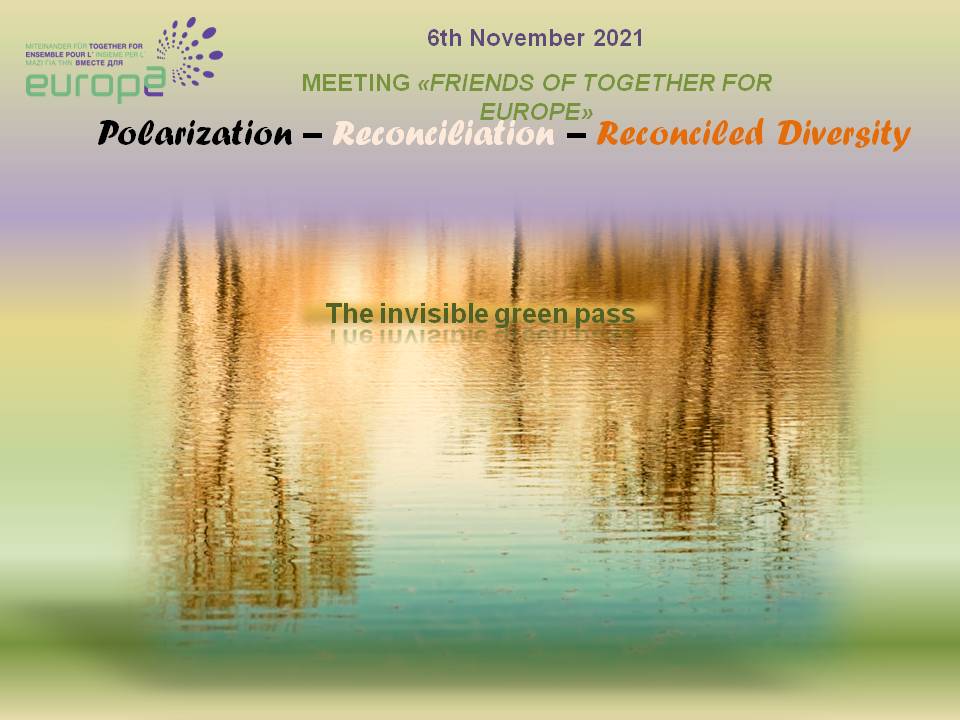
by Ilona Toth | Nov 30, 2021 | 2021 Friends | Castel Gandolfo, News
Reality ought to be faced in light of our calling: this enables us to read and understand together the signs of the times and act accordingly. This is what the Meeting of Together for Europe was all about.
All controls are in place: the green pass, the wrist temperature, the mask and social distancing. However, there’s more. Here, the persons have also an invisible ’green pass’: it’s their ‘Yes’ to their vocation to promote Togetherness in line with their fidelity to the ‘pact of mutual love’. It’s quite evident that today’s humanity is facing unprecedented challenges, and this almost makes it compulsory for us to be united, work together and sustain one another. No one found this an easy task. Marco Impagliazzo, President of the St Egidio Community, stated: “I thank you for having knocked on my door with perseverance; indeed, that’s why I’m here”. Each one had to put aside something: commitments, urgent matters or worries regarding travelling, as, for example, Fr Juan Pablo Catoggio, leader of the Schönstatt Presedium, had to do.
We’re talking about the meeting of the Steering Committee, at last in person, which was held at the International Centre of the Focolare Movement in Castel Gandolfo (Rome), with several leaders of Communities and Movements belonging to various Churches. The latter included Hansjörg Kopp (General Secretary, YMCA Germany) and Martin Bühlmann (Vineyard, Switzerland and Germany). After a day of sharing and work, the evening appointment was an online meeting with various persons that form part of the ecumenical network so as to renew the shared mission for Europe, which is, as the title of the Meeting suggested: moving from polarization toward a reconciled diversity through reconciliation.
Margaret Karram, President of the Focolare Movement, arrived on foot because of the heavy traffic. After expressing her gratitude, the first thing she said was that she was there to learn for the others. The sharing of lived-out experiences during the pandemic, the shared doubts and the challenges that need to be tackled rendered the meeting a school of communion. No one was in a hurry. Even Jesús Moran, Co-President of the Focolare Movement, stayed for lunch: this was an opportunity to know each other better and to clarify ideas and points of view.
The much-awaited 6th November ZOOM Meeting based in Castel Gandolfo was open on the whole of Europe. After a few minutes of meditation and prayers, we set upon a journey that took us from East to West, and from North to South of our Continent. We listened to persons with the ‘green pass’ of Togetherness sharing how they helped others in their material and spiritual needs, thus sowing hope around them. These contributions provided a framework for two keynote speeches: by Gerhard Pross, Moderator of Together for Europe, and by Margaret Karram.
Here is the text of their contributions:
Gerhard Pross “The prophetic mission of Together for Europe” >>
Margaret Karram “The message of reconciliation in the midst of polarisation” >>
The evening prayers, which were prepared by several persons, were conducted in four languages and reached a climax with the ‘pact of mutual love’, according to John 13, 34, which was renewed in many languages.
The chat feedbacks were many; they expressed gratitude for the keynote speeches, the lived-out experiences and the encouragement provided. One stated: “It’s a strong message that is, at the same time, full of hope based on the certainty that the Lord of history is with us, in our midst, if we tread His pathway of Unity”. And another, using a poetic form: “Together for Europe seems to be ‘an underground river, which one cannot see, but which is constantly moving, dragging stuff, excavating, joining others and then one day it will return to the surface; we don’t know where and when this will happen, but when it does it will transform the territories it hits’”.
The monitors were switched off, and off we went. In 2022 we hope to be able to greet each other in person in Portugal, enriched with new experiences. Our ‘green pass’ allows us to reach “all boundaries”– as Gerhard Pross put it – and “adopt a perspective of the Kingdom of God that is wider and more complete”.
In her final greeting, Margaret Karram summed up: “Reconciled diversity, in which we believe because we have experienced it already, may mark a new step forward for Together for Europe in the coming years. It may indicate the program on which to base our living and our initiatives”. Indeed, it’s a program that goes beyond Europe.
Ilona Tóth
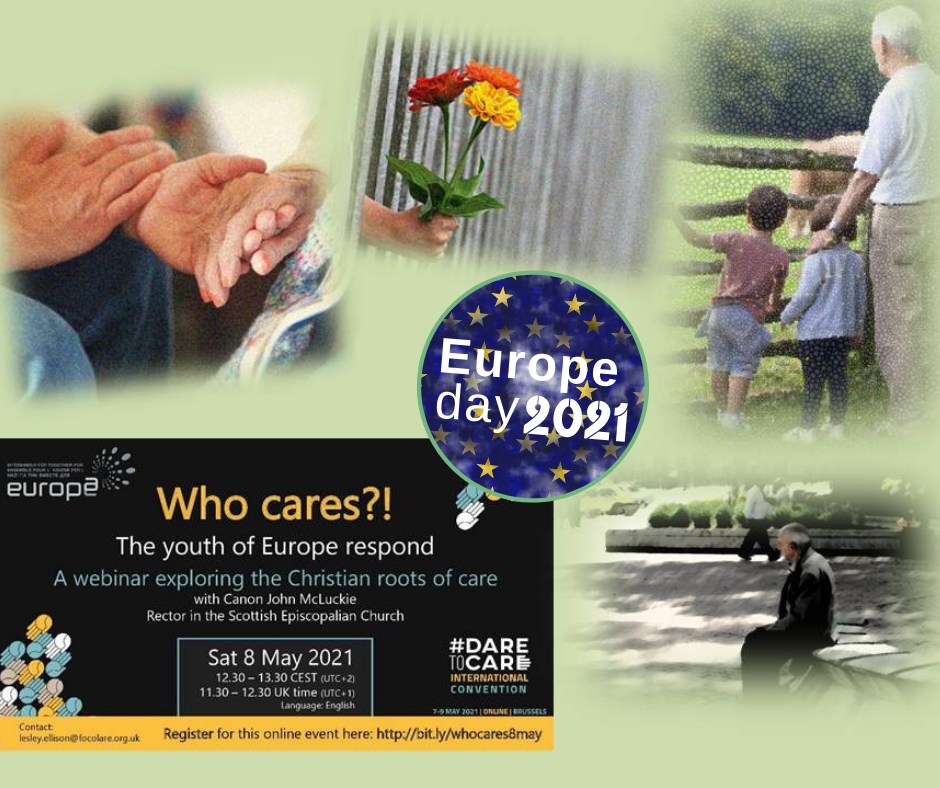
by Ilona Toth | Apr 30, 2021 | 2021 Europe Day, News
The response of European young people
A webinar during the United World Week will explore the Christian roots needed for one to “care”. Those taking part: Canon John McLuckie, of the Scottish Episcopalian Church and 14 young people belonging to 4 different Communities and coming from 7 different European countries.
On Facebook I read that a housewife, seeing the tragic situation in hospitals due to the pandemic, decided to make cakes for the doctors and nurses. Now, several thousand persons and associations have joined in and are covering more than 40 hospitals, thus creating a true network in various cities of the Country. This is what happens when a person, responding to an appeal by a first aid department, started to do something! And this is then taken up by others who are willing to join in. At the end of the day, everyone is happy, those who received as well as those who donated!
Today our calendar is full of feast days that remind us of some event, or the common good of a Country or a Continent or of the entire planet. Theses have become a cultural legacy of whole populations thanks to the initiative of a person, or a group, a Church or an Association.
Even May 9, Feast of Europe is one of these, as well as the United World Week, which was started by the young people of the Focolare Movement to make many others aware of the need for peace and brotherhood among peoples.
This year, between May 1 and 9, various events can be followed on the website of “United World Project”>>. Among these there is an event in which even Together for Europe was involved in its preparation. In what way? We asked young people what they would like to say to other young people, what lived-out experiences they can offer as “care” of the others – since the slogan of the Week is #daretocare? When one listens and sees these young people expressing their ideals, hope in the future is rekindled.
Am you still young – or, were you once a young person? Then you can ask yourself: what can I do, here and now, for the others? Those who understand English are invited to click on https://bit.ly/whocares8may, and there they may find a vaccine dose… not against Covic19, however.
Ilona Toth



